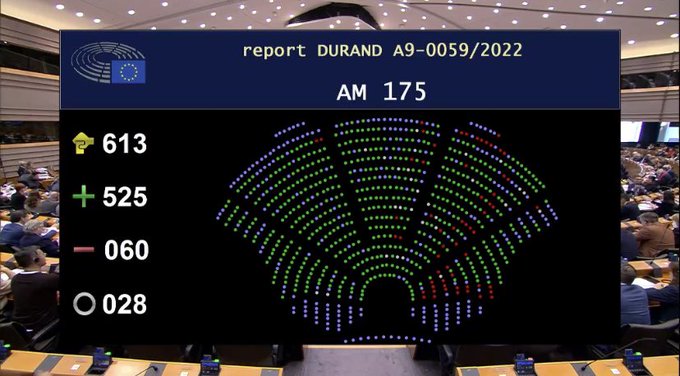With the aim of reinforcing companies' commitment to environmental and social issues, the "mission-driven company" statute seeks to redefine their place in society. This promising status is beginning to make inroads into the entrepreneurial world, although many fear it could be hijacked for advertising purposes.
French company Danone announced on May 20, 2020 its intention to become a mission-driven company. The food giant is thus set to join Carrefour before long, becoming the second CAC 40 company to acquire this status defined by the 2019 PACTE law and which had already seen several companies sign up to this new initiative, such as MAIF in June 2019.
After the corporate citizenship of the 1990s and the social responsibility of the 2000s, the government is seeking, through this new status of mission-driven company, to breathe new life into the social commitment of companies, which has been severely damaged by the social crises of recent years.
The mission-driven company: reasserting the company's role in society
In a fast-changing society where societal and environmental issues have taken on a particular dimension, the Action Plan for Business Growth and Transformation (PACTE law) is working to redefine the role of business within French society. As places of creation and sharing, companies are more than just profit-driven. While more than half of French people believe that a company should be useful to the community, the PACTE law encourages companies to take this societal dimension more fully into account, thanks to two measures.
First, companies are invited to define their raison d'être. A founding objective of the entrepreneurial project, the raison d'être questions the place of the company and its usefulness in today's society. Far from being an advertising slogan or a strategic positioning, raison d'être is a long-term statement of the company's corporate purpose. Appreciated by young people, the Lego brand has given a new dimension to its social usefulness by specifying its raison d'être. Its primary activity is not to amuse, but "to inspire and find the builders of tomorrow". Seeking to "reconnect its communities with nature", Groupe Rocher's raison d'être formalizes its commitment to sustainable development. Taken as part of its CSR, these will even be deepened, with Groupe Rocher becoming a mission-driven company in December 2019.
As a further step in their commitment to society, companies can also become "mission companies". This more restrictive status obliges companies to implement social and environmental objectives that they define themselves. These objectives must be supported by a mission committee and their implementation verified by an independent third-party organization. At present, only a few French companies have succeeded in obtaining this status, including supermarket chain Carrefour (June 2019) and biotech company Medincell (September 2019).
Raison d'être and mission-driven companies: an opportunistic communications stunt?
One year after the PACTE law, companies are gradually embracing the measures, a move welcomed by employees. An IFOP study in November 2019 in fact highlights that 75% of employees consider their company's raison d'être to be important, while 77% of those surveyed confirm that the company's role goes beyond its economic activity alone.
In a society where we seek to give an ethical meaning to our consumption (respect for the environment, French production, etc.), becoming a company with a mission is part of this logic. For the same product, consumers will make their choice based on the context in which it was created and the reasons behind it. As an additional asset for building consumer loyalty, publicly highlighting your status as a mission-driven company or your raison d'être should attract new customers and help you win market share.
After greenwashing, we can expect a form of mission-washing from certain companies that have not yet managed to grasp the benefits of the project as a whole. However, if the approach is sincere and well executed, it would be unfair to blame companies for expecting a commercial return, given their investment.
Becoming a company with a mission, a profound social commitment for companies
Becoming a company with a mission cannot be a superficial process, because, as Mark Twain reminds us: "The two most important days of your life are the day you were born and the day you understood why". This is also true for a company, as the benefits of the approach go beyond the marketing framework.
Becoming a company with a mission is a project that enables us to determine a company's contribution to society. Collective intelligence must therefore be put to use in this reflection. Involving employees will also strengthen collective cohesion, improve corporate culture and give a deeper meaning to work. Through the various steps involved in achieving mission-driven status, the company can finally renew its internal organization to better respond to its raison d'être and defined objectives. The company will emerge stronger, both internally and externally.
Becoming a company with a mission is also a commitment for the company to become an active member of all strata of French life, and no longer confine itself to the country's economy. It's a way of reaffirming its sense of belonging, changing its image and, in so doing, helping to improve the - often negative - perception of companies over the long term. Successful communication around a raison d'être or a mission-driven company status will therefore only succeed in the long term if the project behind it is coherent and reliable.
With this in mind, Danone CEO Emmanuel Faber has declared that he is beginning the process of moving towards a mission-driven company, a status endorsed on June 26, 2020 at the Annual General Meeting of Shareholders. More than just well-oiled public communications in times of health crisis, Danone's societal approach is part of an already well-established corporate activism and a clear vision of tomorrow's economy. The French company is working in parallel to obtain worldwide B corporation certification, having already succeeded in having 30% of its sales validated worldwide, i.e. 17 group entities.
By becoming a mission-driven company, you are no longer falsely following the French societal trend to move away from uncontrolled capitalism towards a more rational, sustainable approach. By becoming a mission-driven company, the aim is to actively support this movement, to ensure that it continues.


